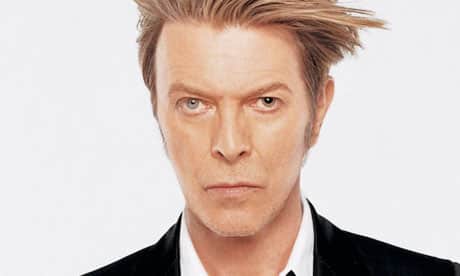David Bowie Dies at age 69
David Bowie, the infinitely changeable, fiercely forward-looking songwriter who taught generations of musicians about the power of drama, images and personas, died on Sunday, two days after his 69th birthday.
Mr. Bowie’s death was confirmed by his publicist, Steve Martin, on Monday morning.
He died after having cancer for 18 months, according to a statement on Mr. Bowie’s social-media accounts.
“David Bowie died peacefully today surrounded by his family,” a post on his Facebook page read.
His last album, “Blackstar,” a collaboration with a jazz quartet that was typically enigmatic and exploratory, was released on Friday — on his birthday. He was to be honored with a concert at Carnegie Hall on March 31 featuring the Roots, Cyndi Lauper and the Mountain Goats.
He had also collaborated on an Off Broadway musical, “Lazarus,” that was a surreal sequel to his definitive 1976 film role, “The Man Who Fell to Earth.”
If he had an anthem, it was “Changes,” from his 1971 album “Hunky Dory,” which proclaimed:
“Turn and face the strange / Ch-ch-changes / Oh look out now you rock and rollers / Pretty soon now you’re gonna get older.”
Mr. Bowie earned admiration and emulation across the musical spectrum — from rockers, balladeers, punks, hip-hop acts, creators of pop spectacles and even classical composers like Philip Glass, who based two symphonies on Mr. Bowie’s albums “Low” and “ ‘Heroes.’ ”
Mr. Bowie’s constantly morphing persona was a touchstone for performers like Madonna and Lady Gaga; his determination to stay contemporary introduced his fans to Philadelphia funk, Japanese fashion, German electronica and drum-and-bass dance music.
Nirvana chose to sing “The Man Who Sold the World,” the title song of Mr. Bowie’s 1970 album, in its brief set for the 1993 “MTV Unplugged in New York.” “Under Pressure,” a collaboration with the glam-rock group Queen, supplied a bass line for the 1990 Vanilla Ice hit “Ice Ice Baby.”
Yet throughout Mr. Bowie’s metamorphoses, he was always recognizable. His voice was widely imitated but always his own; his message was that there was always empathy beyond difference.
Angst and apocalypse, media and paranoia, distance and yearning were among Mr. Bowie’s lifelong themes. So was a taste for transgression coupled with a determination to push cult tastes toward the mainstream. Mr. Bowie produced albums and wrote songs for some of his idols — Lou Reed, Iggy Pop, Mott the Hoople — that gave them pop hits without causing them to abandon their individuality. And he collaborated with musicians like Brian Eno in the Berlin years and, in his final recordings, with the jazz musicians Maria Schneider and Donny McCaslin, introducing them to many new listeners.
Mr. Bowie was a person of relentless reinvention. He emerged in the late 1960s with the voice of a rock belter but with the sensibility of a cabaret singer, steeped in the dynamics of stage musicals. He was Major Tom, the lost astronaut in his career-making 1969 hit “Space Oddity.”
He was the self-destructive Thin White Duke and the minimalist but heartfelt voice of the three albums he recorded in Berlin in the ’70s.
The arrival of MTV in the 1980s was the perfect complement to Mr. Bowie’s sense of theatricality and fashion. “Ashes to Ashes,” the “Space Oddity” sequel that revealed “we know Major Tom’s a junkie,” and“Let’s Dance,” which offered, “Put on your red shoes and dance the blues,” gave him worldwide popularity.
Mr. Bowie was his generation’s standard-bearer for rock as theater: something constructed and inflated yet sincere in its artifice, saying more than naturalism could. With a voice that dipped down to baritone and leapt into falsetto, he was complexly androgynous, an explorer of human impulses that could not be quantified.
He also pushed the limits of “Fashion” and “Fame,” writing songs with those titles and also thinking deeply about the possibilities and strictures of pop renown.
Mr. Bowie was married for more than 20 years to the international model Iman, with whom he had a daughter, Alexandria Jones.
In the late 1960s, Lindsay Kemp, a dancer, actor and mime, became a lasting influence on Mr. Bowie, focusing his interest in movement and artifice. Mr. Bowie’s music turned toward folk-rock and psychedelia. The release of “Space Oddity,” shortly before the Apollo 11 mission, gained him a British pop audience and, when it was rereleased in 1973 in the United States, an American one.
By then, with the albums “Hunky Dory,” “The Rise and Fall of Ziggy Stardust and the Spiders From Mars” and “Aladdin Sane,” Mr. Bowie had become a pioneer of glam rock and a major star in Britain, playing up an androgynous image. But he also had difficulties separating his onstage personas from real life and succumbed to drug problems, particularly cocaine use. In 1973, he abruptly announced his retirement — though it was the retirement of Ziggy Stardust, not of Mr. Bowie.
He moved to the United States in 1974 and made “Diamond Dogs,” which included the hit “Rebel Rebel.” In 1975, he turned toward funk with the album “Young Americans,” recorded primarily in Philadelphia with collaborators including a young Luther Vandross; John Lennon joined Mr. Bowie in writing and singing the hit “Fame.” Mr. Bowie’s 1976 album “Station to Station” yielded more hits, but drug problems were making Mr. Bowie increasingly unstable; in interviews, he made pro-fascist pronouncements he would soon disown.
For a far-reaching change of environment, and to get away from drugs, Mr. Bowie moved in 1976 to Switzerland and then to West Berlin, a divided city with a sound that fascinated him: the Krautrock of Kraftwerk, Can, Neu! and other groups. Mr. Bowie shared a Berlin apartment with Iggy Pop, and helped produce and write songs for two Iggy Pop albums, “The Idiot” and “Lust for Life.” He also made what is usually called his Berlin trilogy — “Low,” “ ‘Heroes’ ” and “Lodger” — working with Mr. Eno and Mr. Bowie’s collaborator over decades, the producer Tony Visconti. They used electronics and experimental methods, like having musicians play unfamiliar instruments, yet songs like “ ‘Heroes’ ” conveyed romance against the bleakest odds.
As the 1980s began, Mr. Bowie turned to live theater, performing in multiple cities (including a Broadway run) in the demanding title role of “The Elephant Man.” Yet in that decade, he would also reach his peak as a mainstream pop musician — particularly with his 1983 album “Let’s Dance,” which he produced with Nile Rodgers of Chic; the Texas blues guitarist Stevie Ray Vaughan also performed on the album. But by 1989, Mr. Bowie was determined to change again; he recorded, without top billing, as a member of the rock band Tin Machine.
His experiments continued in the 1990s. In 1995, he reconnected with Mr. Eno on an album, “1. Outside,” — influenced by science fiction and film noir — that was intended to be the start of a trilogy. Mr. Bowie toured with Nine Inch Nails in an innovative concert that had his band and Nine Inch Nails merging partway through. Mr. Bowie’s 1997 album, “Earthling,” turned toward the era’s electronic dance music.
By the 21st century, Mr. Bowie was an elder statesman. He had been inducted into the Rock and Roll Hall of Fame in 1996. In 2001, he sang “ ‘Heroes’ ” at the Concert for New York City after the Sept. 11 attacks. His last tour, after the release of his album “Reality,” ended when he had heart problems in 2004. But he continued to lend his imprimatur to newer bands like Arcade Fire, joining them onstage, and TV on the Radio, adding backup vocals in the studio.
In 2006, he performed three songs in public for what would be the final time, at the Keep a Child Alive Black Ball fund-raiser at the Hammerstein Ballroom in New York.
His final albums were a glance back and a new excursion. “The Next Day,” released in 2013, returned to something like the glam-rock sound of his 1970s guitar bands, for new songs suffused with bitter thoughts of mortality. And “Blackstar,” released two days before his death, had him backed by a volatile jazz-based quartet, in songs that contemplated fame, spirituality, lust, death and, as always, startling transformations.
Here’s what some of you had to say about David Bowie.
David Bowie made it cool to be weird, to be different, and to be all of yourself. So shocked and sad that he's gone. pic.twitter.com/pnitiMhxBv
— Joy Reid (@JoyAnnReid) January 11, 2016
#DavidBowie through the ages in one great gif from @Helengreeen More tributes to the pop idol now on DW News pic.twitter.com/JDsWcB6uJN
— dwnews (@dwnews) January 11, 2016
David Bowie… You will be missed, but not forgotten. Many people's #Heroes Legend. pic.twitter.com/LDMMpml8fP
— Russell Wilson (@DangeRussWilson) January 11, 2016
When David Bowie sang "You're not alone" on Ziggy Stardust, as a kid I felt he was talking to me and it helped me survive. What a sad day.
— Ed Brubaker (@brubaker) January 11, 2016
#DavidBowie Thank you for coming down to meet us. I think you blew our minds.
— Jamie Bamber (@ImJamieBamber) January 11, 2016
Correction: January 11, 2016
An earlier version of this obituary referred incorrectly to the group Mr. Bowie collaborated with on “Blackstar.” It is a jazz quartet, not quintet.




No comments yet... Be the first to leave a reply!